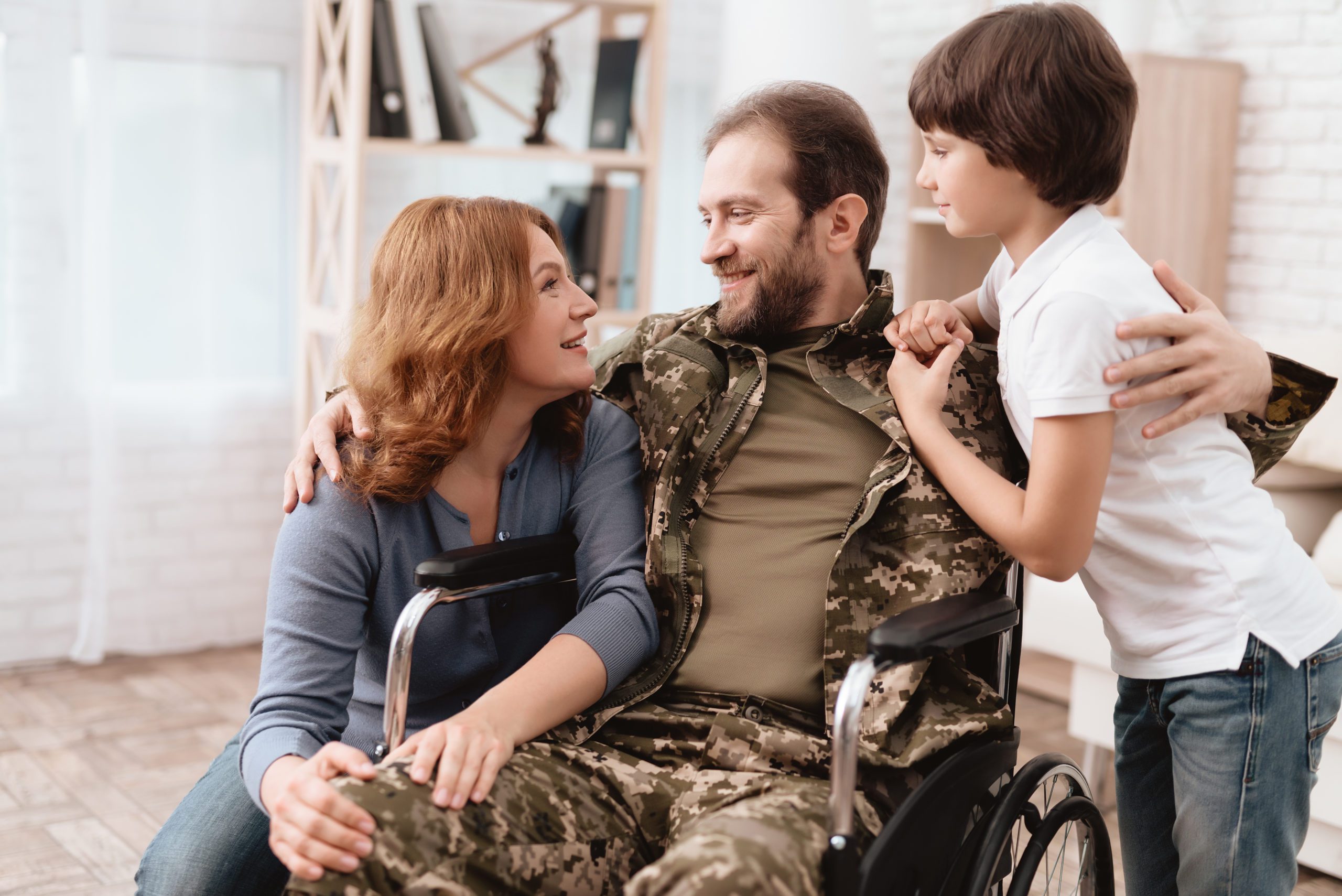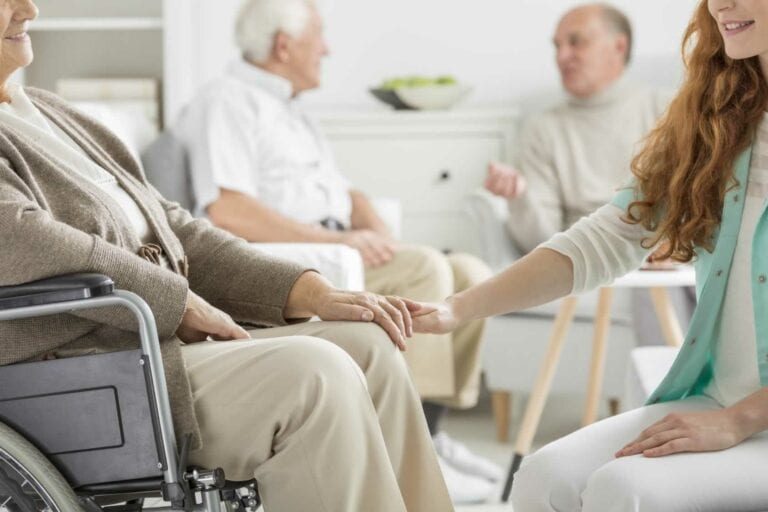
A number of years ago, a Veterans Choice Program was created as part of the Veterans Access, Choice, and Accountability Act of 2014. Veterans who are eligible for the program may receive medical care directly from the Department of Veterans Affairs instead of traveling to a medical facility.
As part of the Veterans Choice Program, the Patient-Centered Community Care (PC3) contract has expanded to include implementing the program nationally. PC3 is a VA program that can assist with the provision of specific medical care when local VA medical centers cannot readily provide it. The Veterans Choice Program serves as a supplement to PC3 as another method for acquiring care in the community when there is a difficulty finding specialist, long wait times, geographic inaccessibility, or other factors. For eligible Veterans, it provides extended coverage of services and increased flexibility in care delivery.
The Department of Veterans Affairs (VA) compensates two million veterans and their surviving spouses with an annual pension valued at $22 billion, but only one-third of elderly veterans are aware it exists. A social worker, a domestic helper, or other healthcare provider can help veterans and their families find assistance to learn about and apply for this benefit.
There are several options for home care.
Home health care is necessary for a lot of Veterans, but the amount of money they get to spend on their care leaves them lacking. Another affordable option is the Department of Veterans Affairs’ (VA) in the form of Home Health Care Providers. There are many home care services offered by home care providers, including:
- Medication reminders
- Bathing/hygiene/grooming
- Toileting and incontinence care
- Companionship
- Meal preparation/feeding
- Laundry
- Light housekeeping
- Grocery Shopping/errands
- Transportation
A Veterans may not be able to afford to live in their own home. Without appropriate guidance, Veterans may not realize how helpful your services can be. Those who provide home care to Veterans and their immediate family members can offer exceptional services with the right assistance, advice, and resources.
Veterans and their families should be aware of the difficulties they may encounter while dealing with the Department of Veterans Affairs (VA), and how they have to fill out mountains of paperwork without knowing what benefits they will receive in return.
Moves to Seeking Veteran’s Home Care
Veterans who are unable to leave the home because of chronic illness or service-related disabilities can receive home care services covered by the Department of Veterans Affairs (VA). Illness or injury suffered during military service usually results in a person becoming disabled. Taking care of someone in this situation is often a costly endeavor. There are several benefit programs offered by the Department of Veterans Affairs (VA) that can help cover the cost of in-home senior care.
Apply for Veteran’s Home Care by following these steps:
- Please visit your local Veteran Affairs office to find out what benefits you might be eligible for. If a veteran is diagnosed with a service-related disability they have the right to receive free health care. Also, veterans can receive assistance for treatment not relating to their service at a reduced rate.
- There are a variety of associations that can help you apply for benefits, including the Disabled American Veterans Association and the Veterans of Foreign Wars (VFW). Every state is different in regards to the benefits each state offers its veterans.
- Examine the veteran’s needs for home care. Discuss with doctors the care necessary. Provide accommodations for the veteran’s comfort and productivity.
- Several programs provided by the Department of Veterans Affairs (VA) help in-home caregivers receive monetary assistance
- Several grant programs are also provided by the Department of Veterans Affairs (VA) that can be used to make your home handicap accessible. It is meant for homeowners with disabilities who need special housing adaptations, and includes the Special Home Improvements and Structural Alterations Grant, as well as the Specially Adapted Household Grant.
- Aid and Attendant benefits may be eligible for bedridden veterans as well as for veterans needing assistance in everyday living functions such as bathing, dressing, preparing meals, or they may also require assistance while bathing, dressing, or arranging fires. There are veterans who may be eligible for such a benefit program in addition to their pension benefits. Veterans who use this benefits program can also get assistance in covering the costs of home care. In some cases, you can receive these benefits along with your spouse.
If you need assistance, we recommend you contact your nearest Department of Veterans Affairs (VA) office. Another resource is the Department of Veterans Affairs (VA) website, which provides detailed information about specific benefits.
Family caregiver program sponsored by the Department of Veterans Affairs
Care givers of severely injured veterans receive several benefits through the Department of Veterans Affairs. Caregivers may be loved ones such as a parent, spouse, child, grandparent, step-parent, cousin, or aunt and uncle. They are not family members although they may receive support. VA long-term care services include: 24/7 nursing and medical care in nursing homes, assisted living, or at the patient’s home. Find out how to access them.
Eligibility Rules
The following criteria need to be met in order for caregivers to provide in-home care:
- Mental disorders such as traumatic brain injury, psychological trauma, or other mental disorders.
- Care for people whose daily activities are impaired or in danger due to neurological impairments or injuries.
- The injured veteran must also be enrolled in the Department of Veterans Affairs (VA) healthcare program, and the injury must be service-related.
- An allowance per month for care.
- Healthcare expenses while veterans undergo medical treatment, such as room and board.
- Provided the caregiver has no health insurance, they can access health coverage for themselves.
- Counseling and mental health services.
- Easter Seals Respite care offers comprehensive Department of Veterans Affairs (VA) caregiver education (not less than 30 days per year).
Many Veterans and their families are eligible for programs through the Department of Veterans Affairs and the United States Government that cover home care.







